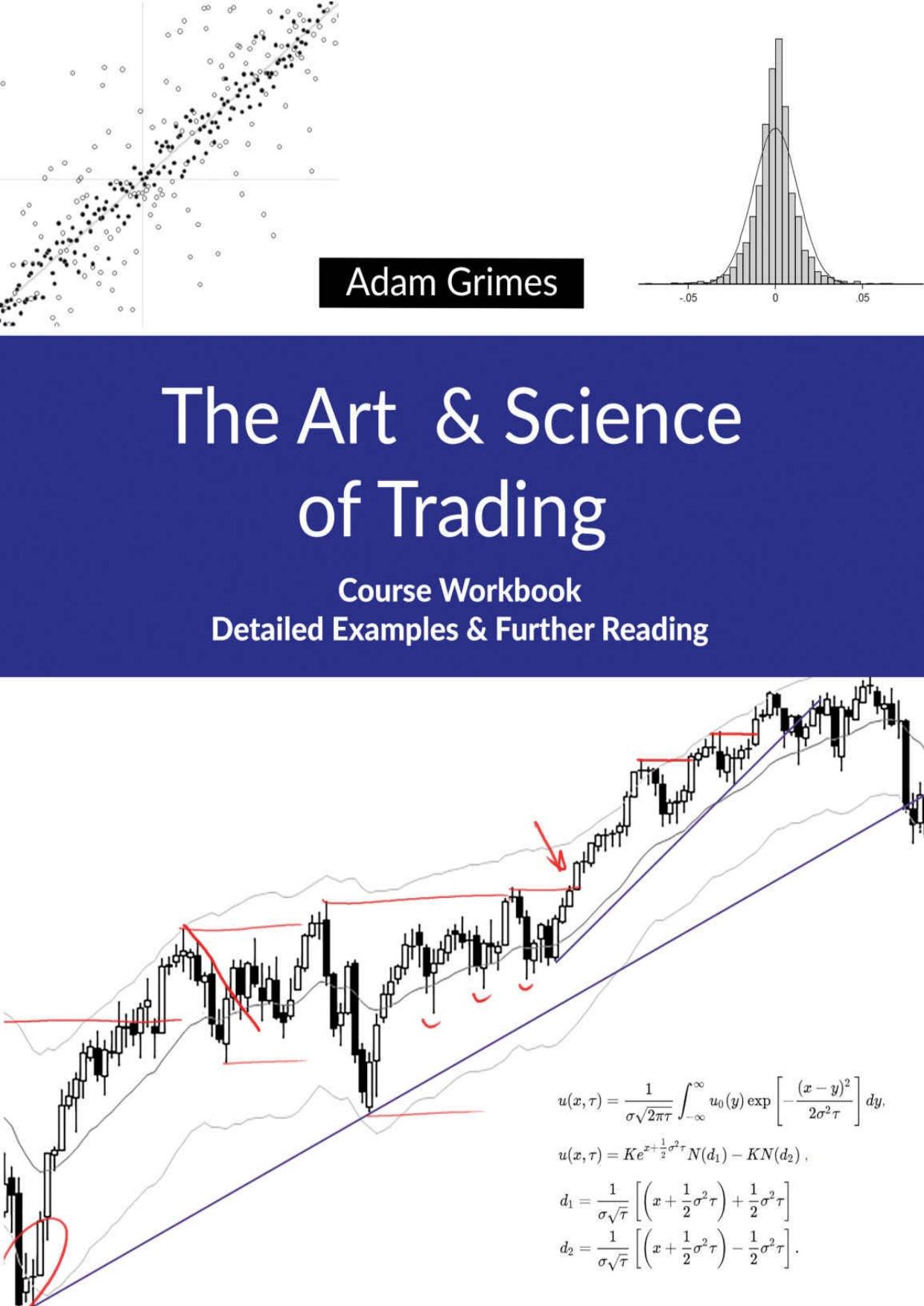The Art and Science of Trading: Course Workbook by Adam Grimes

Author:Adam Grimes [Grimes, Adam]
Language: eng
Format: epub, pdf
Publisher: Hunter Hudson Press
Published: 2018-02-22T23:00:00+00:00
Let’s start with the first one of those: having an opinion can be hazardous to your financial health. Right away, here’s where I think a professional, technically-driven approach separates itself from the pack; so much of what is written or said about financial markets is opinion and speculation. Even experienced, wise people will talk a lot about what might or might not happen, and possible fallout, and then make emotional decisions. Many smart people get into markets thinking they are going to “figure it out.” If you have an engineering background, then you think you’re going to apply one set of tools. If you have an MBA, then you think another set of tools will work. The problem is that none of this really works very well.
Markets are beautifully, wonderfully, and maddeningly counter-intuitive. If you think you’re going to figure out the news and be positioned correctly, good luck. In actuality, it just becomes more ways to lose. For instance, let’s say you have a thesis that you want to buy oil stocks because you think the US Dollar is going to be weak and so crude oil prices will rise. How could this go wrong? Well, perhaps you’re wrong on your USD forecast so you do not pass go. However, you could be right on the USD, but then oil doesn’t move how you think it will. Or maybe the USD forecast is right, crude oil moves as anticipated, but the stocks don’t move in response to oil because something is holding down the stock market.
This is an admittedly simple example, but a lot of “macro thesis” ideas fall into the “more ways to lose” camp. In this example, the actionable part is that you think the USD will be weak. Trade that. Get short the Dollar instead of making all these connections to other markets. Trading is not an intellectual exercise and it’s not a chance to show how smart you are by creating business school case studies.
In my experience, you can’t help but have some opinion and bias on what you think might happen. You’ll have to find the right answer for yourself, but, in my experience, the right thing to do is to ignore that opinion. It’s often emotional, perhaps driven by political considerations, and swayed by the zeitgeist, social and mainstream media, and by my own unstoppable contrarian slant. I know, or rather have learned, that my opinion is a very unreliable guide, and so I ignore it.
Longer-term bias
The other two parts, my long-term bias and action points, are more important. The challenge comes when action points align against your long-term bias. There are many traders who will tell you not to trade against your bias or the longer-term trend, but I’d suggest that might be wrong. Your longer-term bias will sometimes simply be wrong. Your action points may align against your bias (which, let’s say, is driven by the longer-term trend), and those action points may show where the longer-term trend is breaking down.
Download
The Art and Science of Trading: Course Workbook by Adam Grimes.pdf
This site does not store any files on its server. We only index and link to content provided by other sites. Please contact the content providers to delete copyright contents if any and email us, we'll remove relevant links or contents immediately.
Rich Dad Poor Dad by Robert T. Kiyosaki(6642)
Pioneering Portfolio Management by David F. Swensen(6303)
How To Win Friends and Influence People by Dale Carnegie(4515)
The Money Culture by Michael Lewis(4211)
The Dhandho Investor by Mohnish Pabrai(3770)
The Wisdom of Finance by Mihir Desai(3751)
Liar's Poker by Michael Lewis(3452)
Fooled by Randomness: The Hidden Role of Chance in Life and in the Markets by Nassim Nicholas Taleb(3125)
The ONE Thing by Gary Keller(3074)
Mastering Bitcoin: Programming the Open Blockchain by Andreas M. Antonopoulos(3047)
The Intelligent Investor by Benjamin Graham Jason Zweig(3045)
The Psychology of Money by Morgan Housel(3039)
Rich Dad Poor Dad: What The Rich Teach Their Kids About Money - That The Poor And Middle Class Do Not! by Robert T. Kiyosaki(2961)
Investing For Dummies by Eric Tyson(2956)
How to Day Trade for a Living: Tools, Tactics, Money Management, Discipline and Trading Psychology by Andrew Aziz(2951)
How to Win Friends and Influence People by Dale Carnegie(2919)
Market Wizards by Jack D. Schwager(2702)
How to Pay Zero Taxes, 2018 by Jeff A. Schnepper(2656)
Zero Hour by Harry S. Dent Jr. & Andrew Pancholi(2652)
